
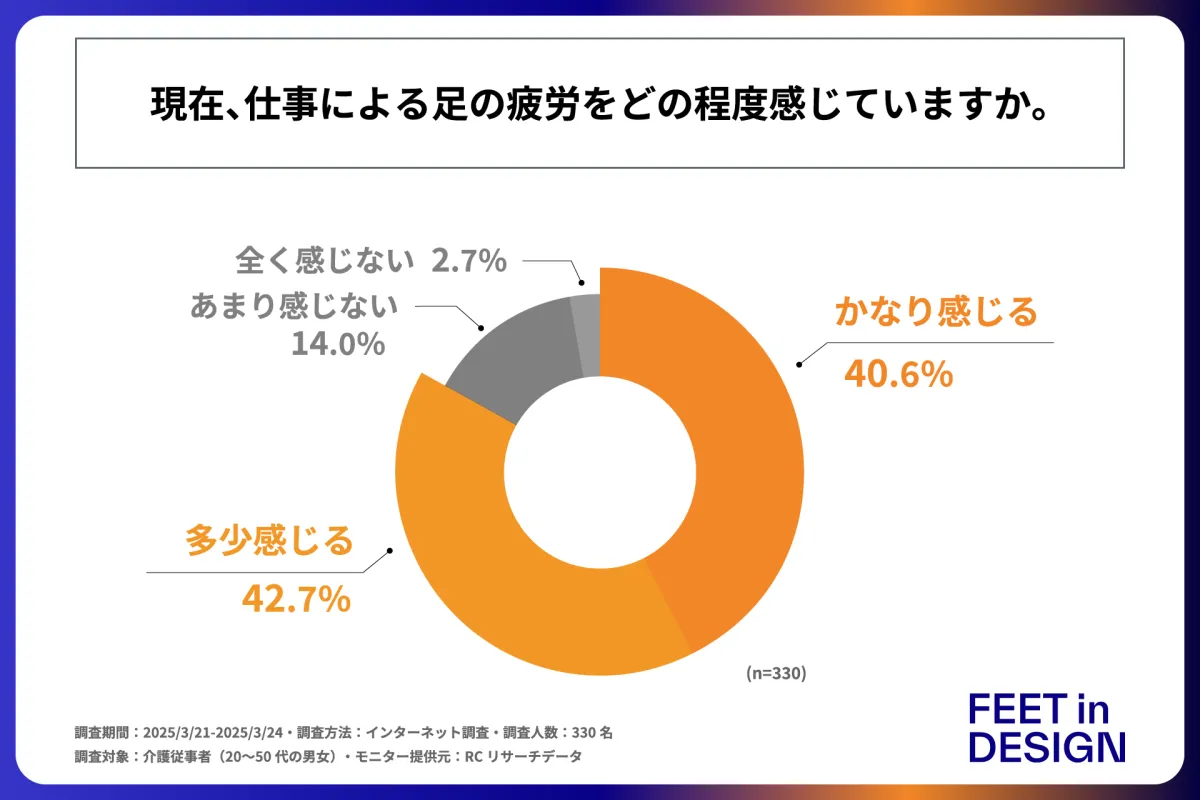
Most Care Workers Experience Significant Fatigue in Their Feet, Revealing the Urgent Need for Effective Solutions
Understanding the Foot Fatigue Crisis Among Care Workers
Recent findings from Feet In Design, a company based in Tokyo, have unveiled alarming trends regarding the physical toll on care workers. Over 80% of them report feeling some level of fatigue in their feet due to their demanding jobs. This information comes from a survey focusing on the fatigue experienced by this essential workforce and the strategies they employ to cope with it.
As Japan's society grapples with serious labor shortages due to its declining birthrate and increasing aging population, the burden on care workers has intensified remarkably. Many of them are now handling more work than is manageable, leading to not just foot fatigue but also broader health issues related to posture and overall well-being. Research indicates that this ongoing physical stress can result in reduced job performance and an increased desire to leave the profession altogether.
Key Findings from the Survey
The survey, which was conducted online between March 21-24, 2025, involved 330 caregiving professionals aged 20 to 50. Among the key outcomes:
- - Approximately 95% of participants reported feeling understaffed at their current workplace.
- - A staggering 80% noted that they experience varying degrees of foot fatigue due to their work.
- - The most common effects of foot fatigue identified were decreased speed and concentration levels.
- - Measures taken by workers to alleviate fatigue included stretching, massage, and wearing supportive shoes and insoles.
- - Dissatisfaction with the effectiveness of these measures was widespread, with over half of the respondents expressing their disappointment.
Insights into the Emotional and Physical Impact
When asked how foot fatigue has affected their work, 34.2% admitted that it slowed their performance, while 30.6% noted difficulties with maintaining focus. Nevertheless, about 31.3% felt there were no significant impacts, indicating some variance in personal experiences.
Despite trying strategies such as stretching and using high-cushion shoes, many care workers reported limited success. Interestingly, 44.1% of individuals dissatisfied with their current methods indicated that temporary relief quickly faded, suggesting that their solutions do not provide long-term benefits.
The Need for Tailored Solutions
Those respondents who felt their strategies were insufficient often cited reasons such as a lack of personalized solutions or the challenges of maintaining a consistent routine. To tackle this pressing issue, Feet In Design introduced ORTHOTICS—custom-made orthotic insoles designed based on individual foot structures. These insoles aim not only to alleviate foot pain but to improve overall bodily balance and performance. Conveniently, they also do not require extensive maintenance, making them a potentially transformative solution for care workers.
Conclusion
The survey results expose a critical issue affecting care workers in Japan. With the majority feeling not only overworked but also physically drained, innovative and effective solutions are imperative. The ORTHOTICS design aims to address these concerns meticulously by enhancing comfort and supporting performance in high-demand work environments.
In conclusion, recognizing and acting upon the significant issues of foot fatigue can lead to better retention of care workers and improved job satisfaction, fostering a healthier workplace for these vital professionals. The report underlines the necessity for industry stakeholders to prioritize wellness strategies effectively and implement supportive tools tailored to the unique challenges faced by care workers in today's aging society.
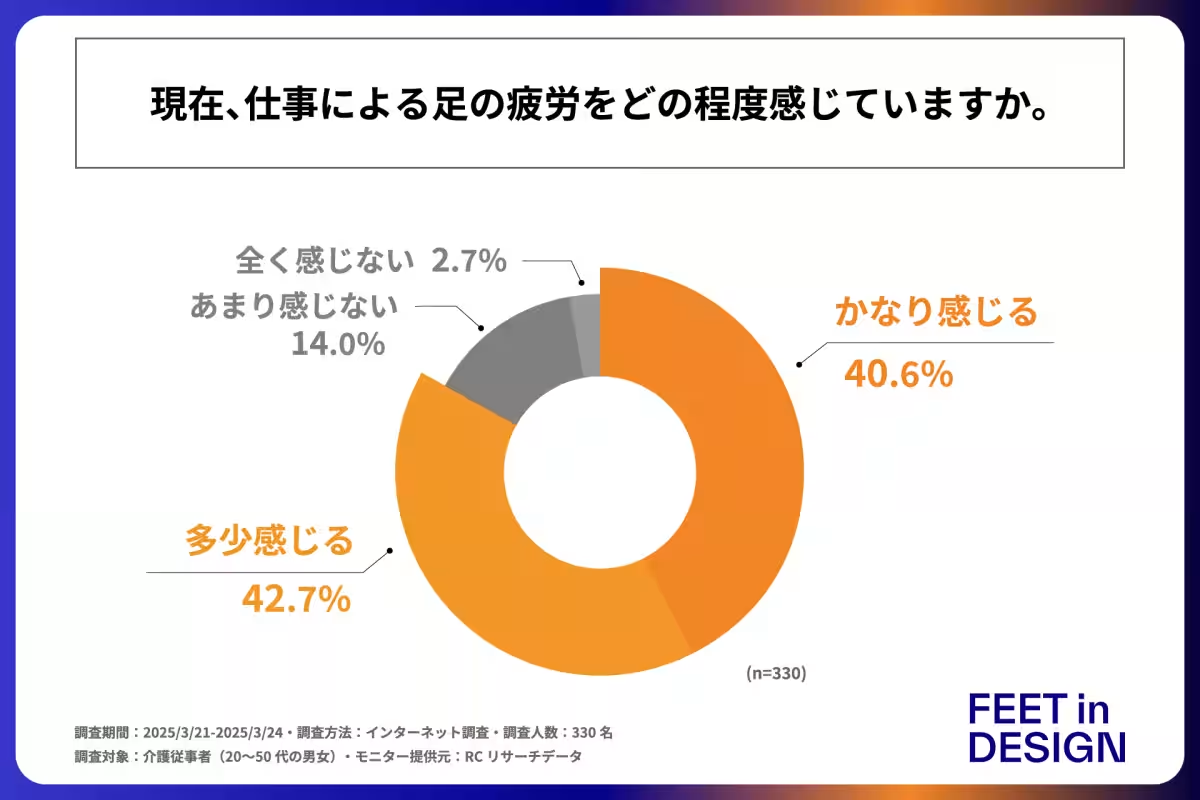
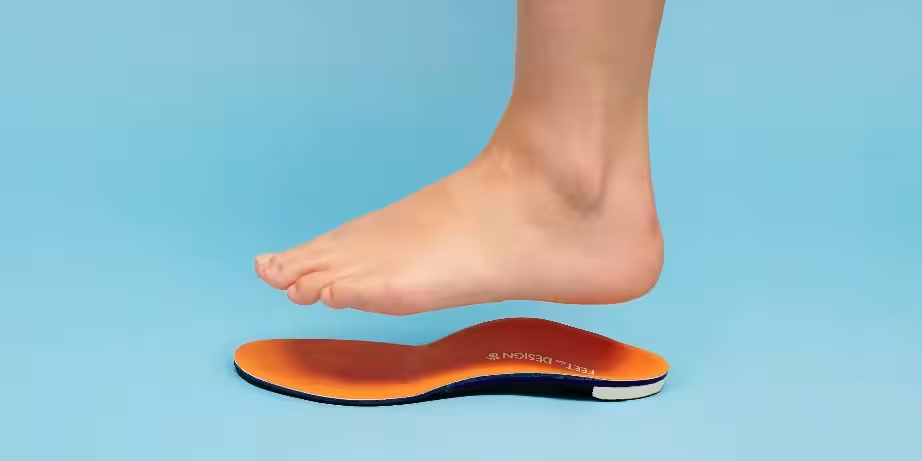

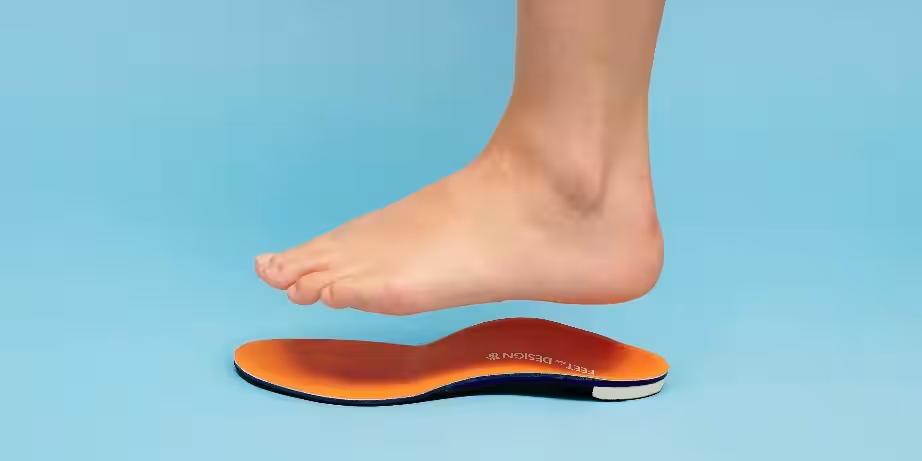
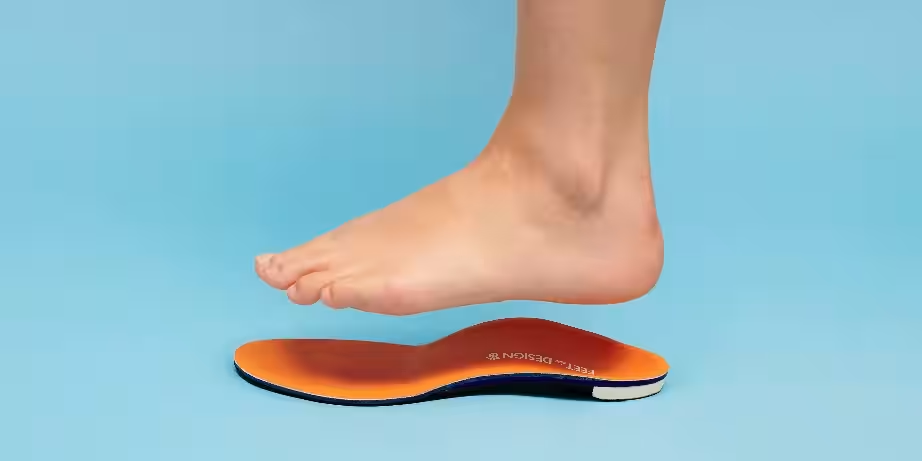
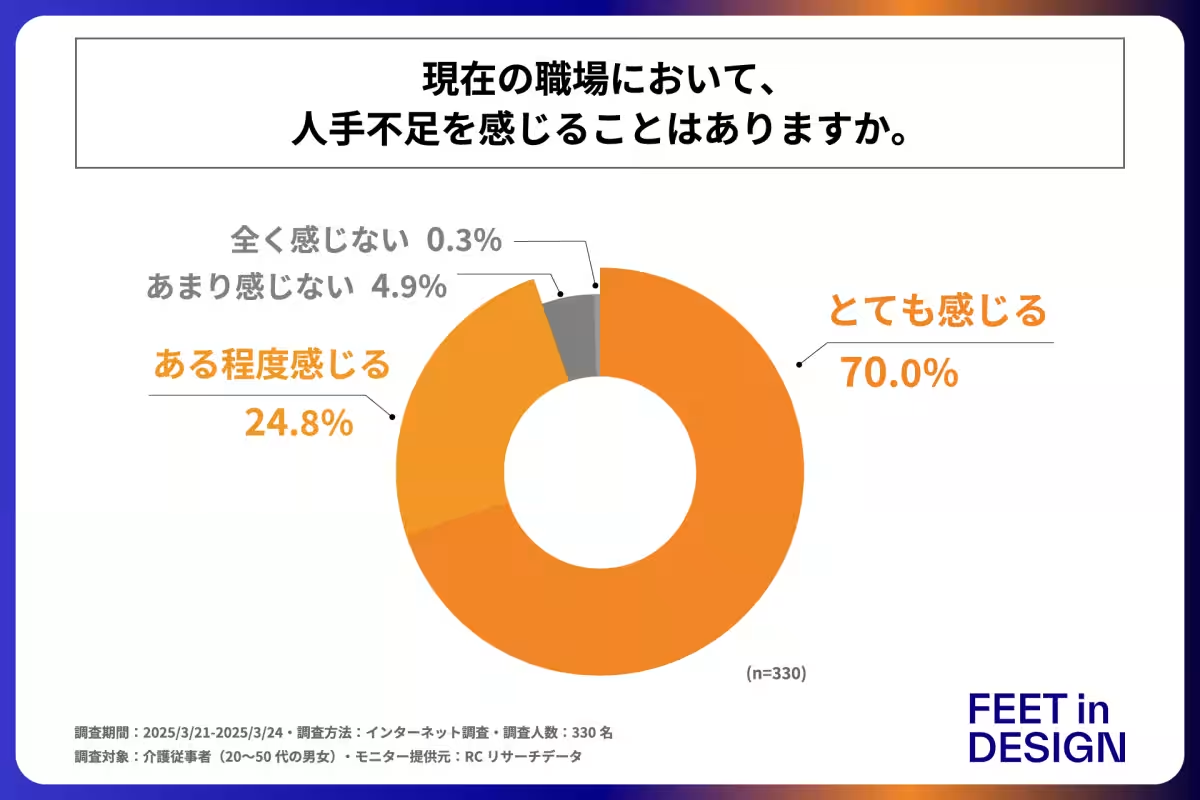
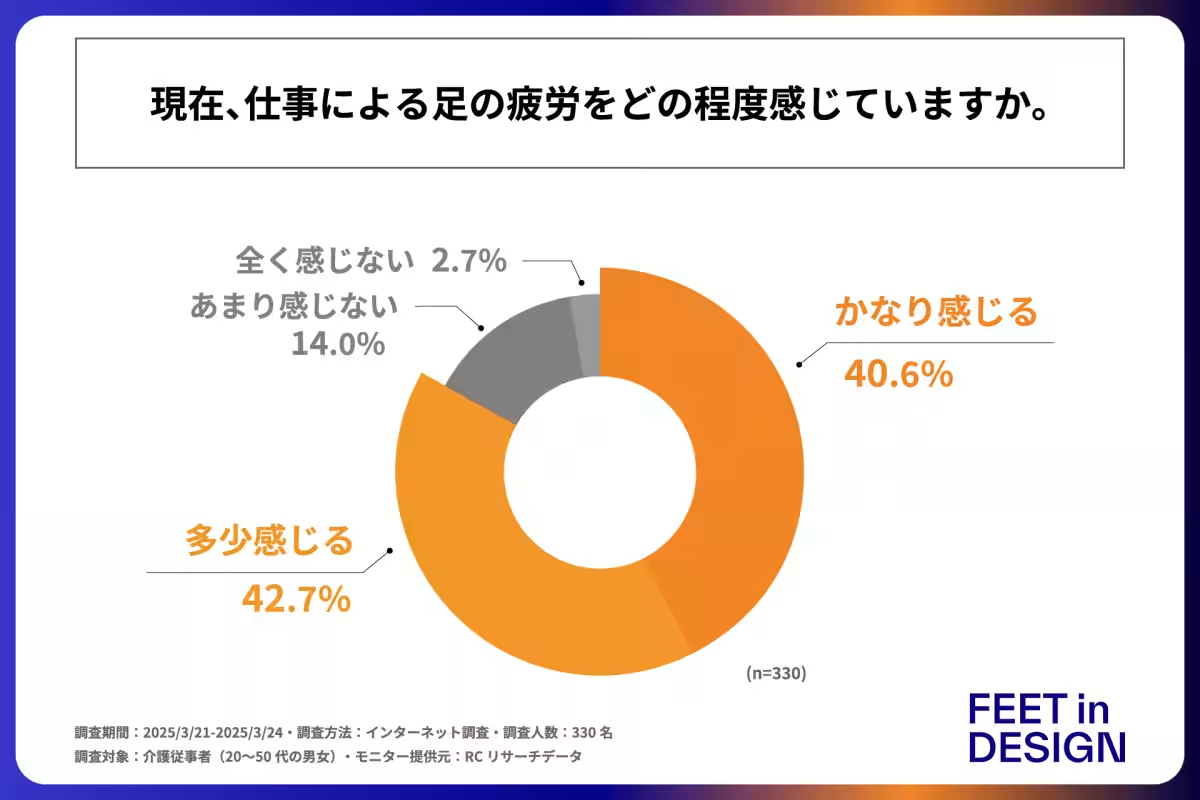
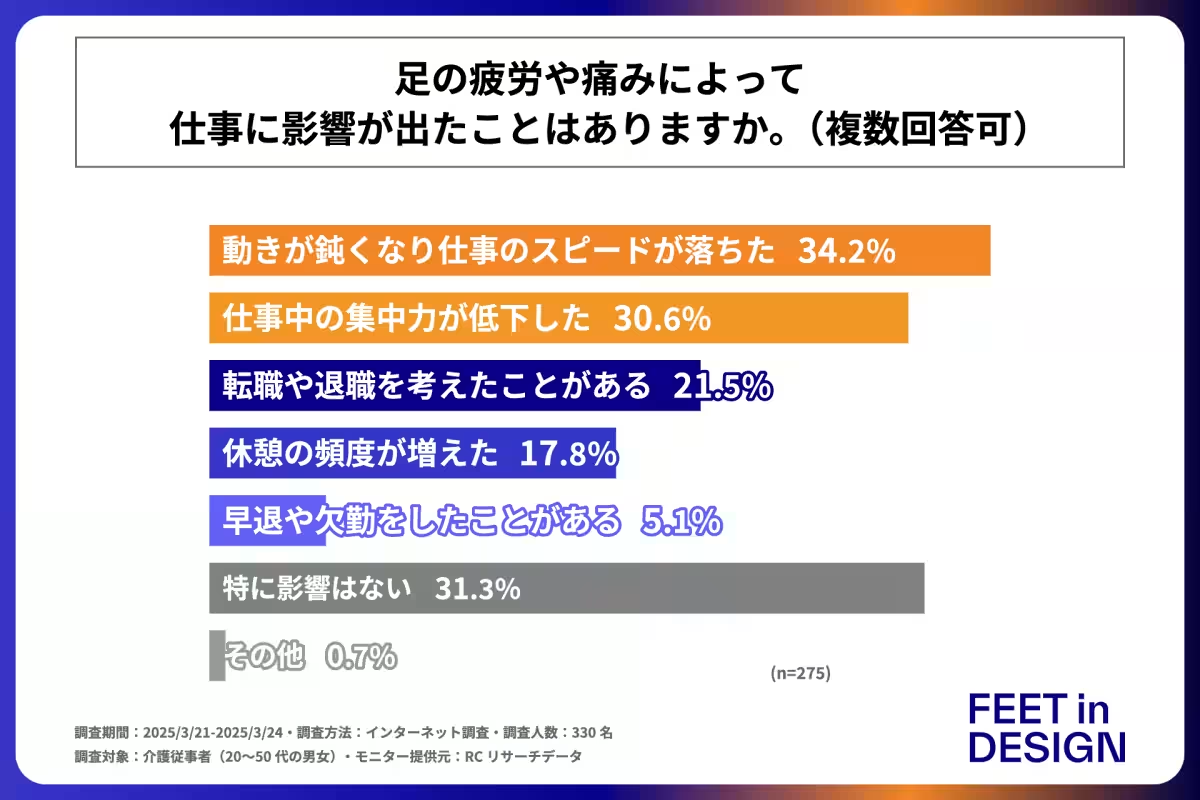
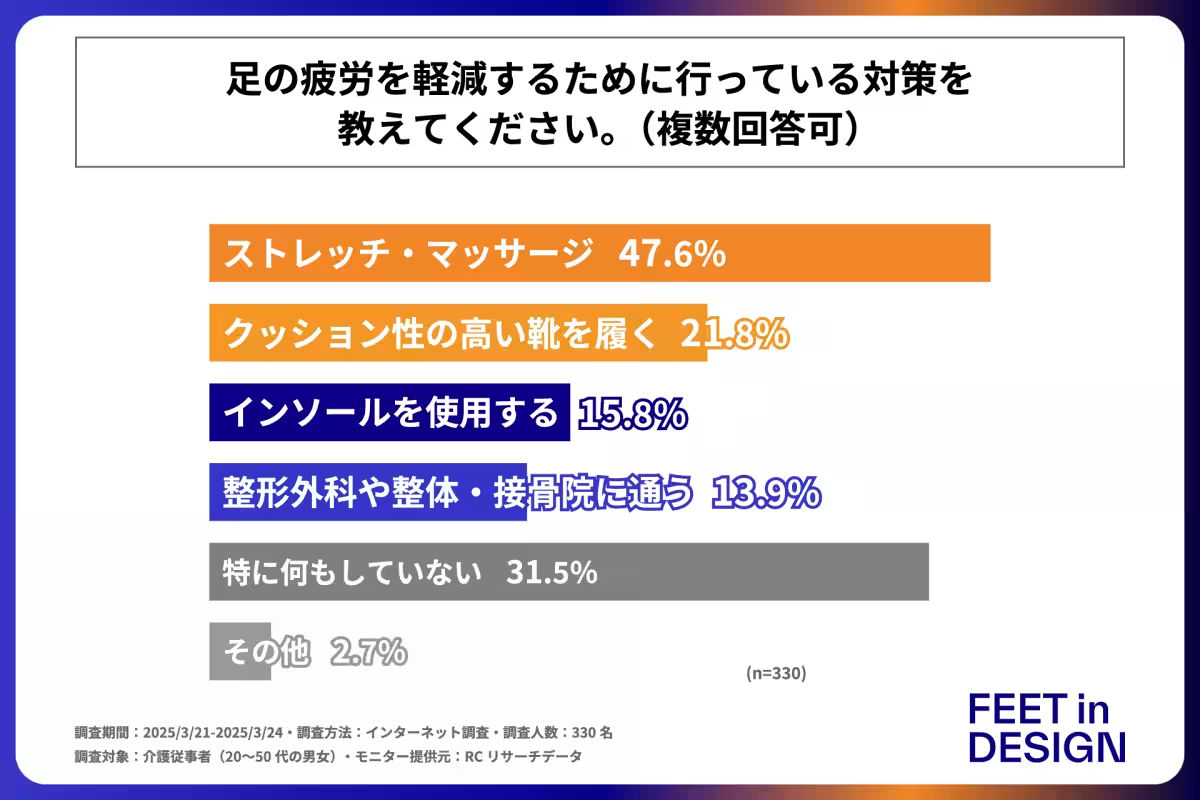
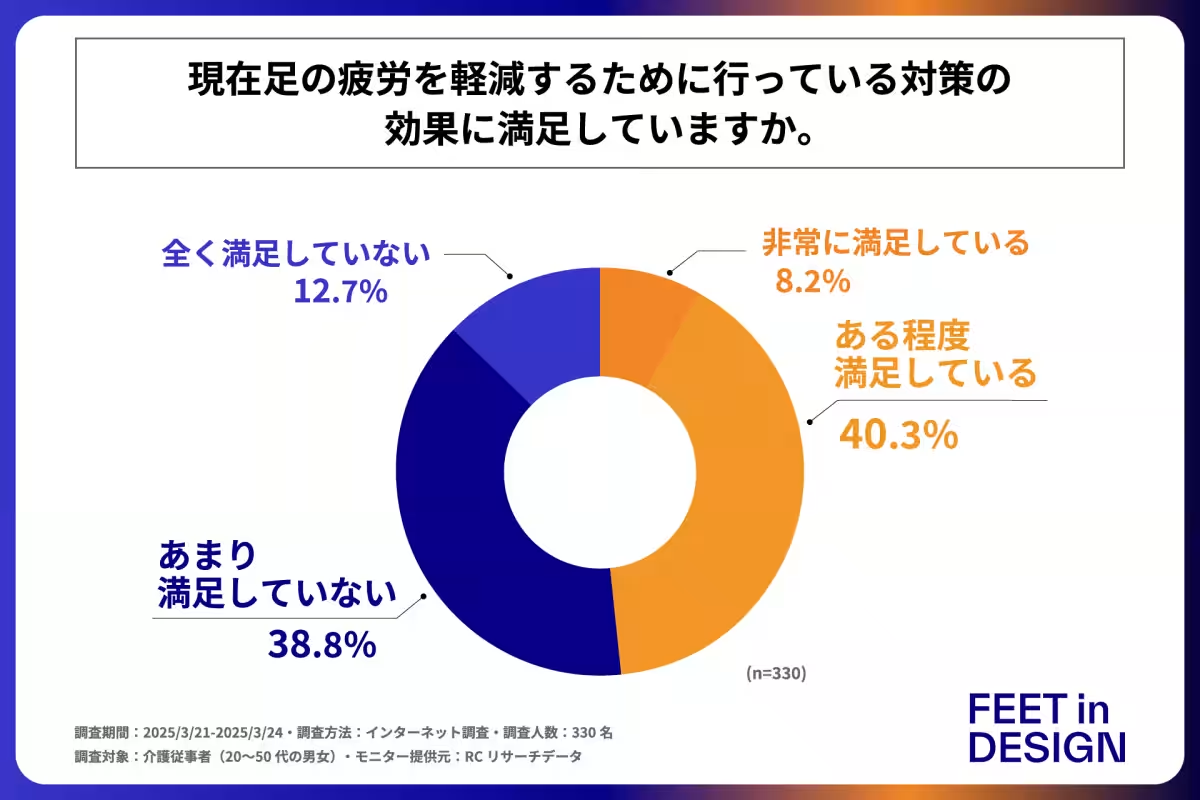
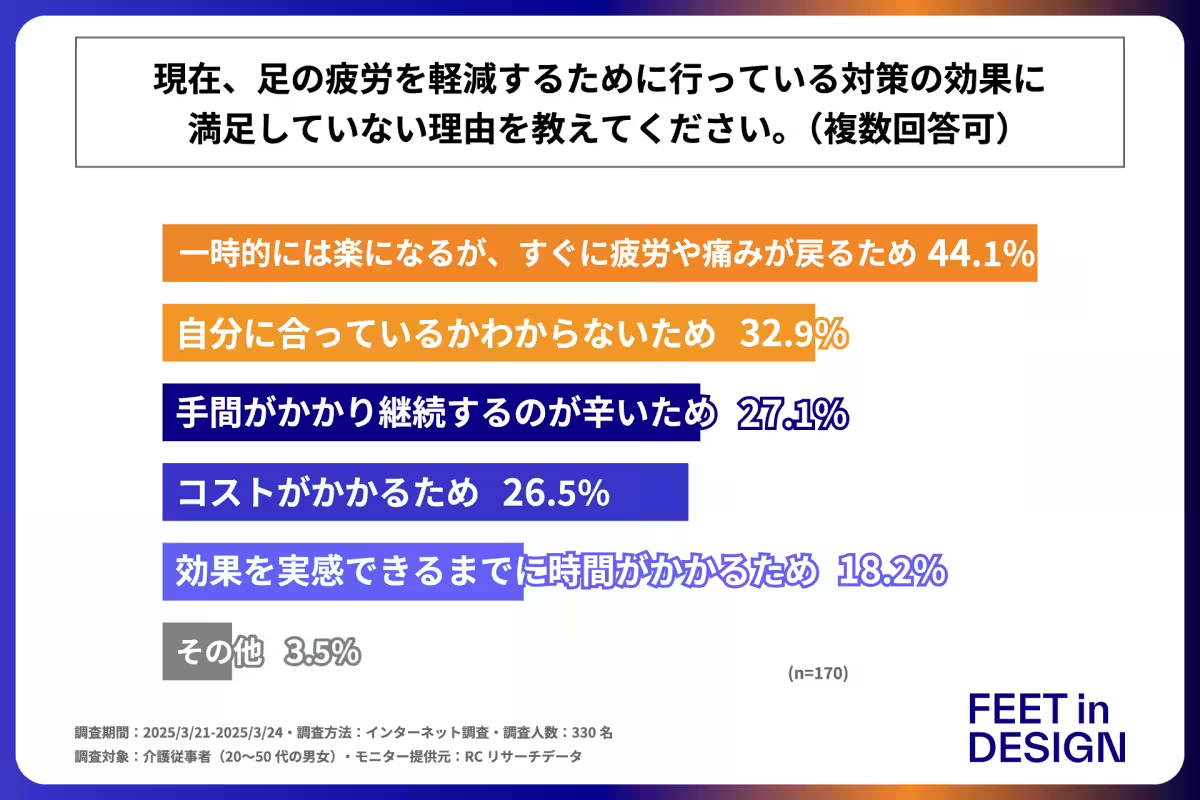
Topics Health)










【About Using Articles】
You can freely use the title and article content by linking to the page where the article is posted.
※ Images cannot be used.
【About Links】
Links are free to use.